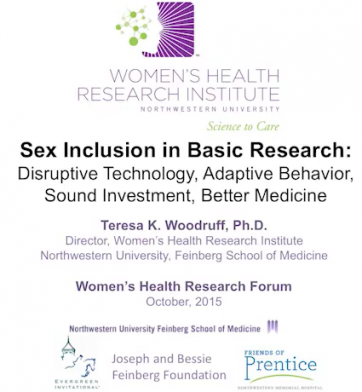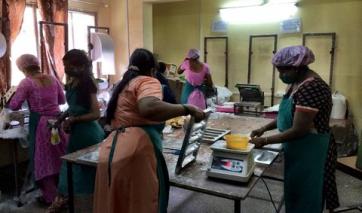 The Endocrine Society recently released their guidelines for the treatment and symptoms of menopuse. Chaired by Cynthia A. Stuenkel, MD, these clinical practice guidelines provide new recommendations on the importance of tailoring treatments to suit a woman's individual symptoms, health history, and preferences. Teaching your patients that menopause is a normal, natural transition in life that begins between the ages of 35-55 may help them through this transitional phase. Every woman will experience menopause differently, so your clinical practices must be tailored to each patient.
The Endocrine Society recently released their guidelines for the treatment and symptoms of menopuse. Chaired by Cynthia A. Stuenkel, MD, these clinical practice guidelines provide new recommendations on the importance of tailoring treatments to suit a woman's individual symptoms, health history, and preferences. Teaching your patients that menopause is a normal, natural transition in life that begins between the ages of 35-55 may help them through this transitional phase. Every woman will experience menopause differently, so your clinical practices must be tailored to each patient.
Your patients may have heard that one of the ways to manage the symptoms associated with menopause is to replace the hormones they are losing with one of several types of prescription drugs known as hormone therapy (HT)--but they might have some questions about hormone therapy or have heard rumors that it is not safe. There are many types of hormone therapies, and if you are interested in exploring these different options with your patients, please watch the Endocrine Society's online lecture discussing the Treatments of the Symptoms of Menopause (found here!). This lecture, complete with audio and slides will review the primary therapies available to patients so that you might help them decide which option is best in regards to their symptoms, health history, and preferences. Once you learn more about your options as a clinician, you can help your patient make informed decisions as they go through the stages of menopause! Also consider inviting your patients to take the Women's Health Research Institute's Menopause Self-Assessment, as this may help them place their own menopause experience in a personal context.


 In a recent editorial in the Atlantic, writer Joe Fassler discusses an
In a recent editorial in the Atlantic, writer Joe Fassler discusses an  According to several studies, many women are either receiving unnecessary
According to several studies, many women are either receiving unnecessary  Do you have questions about your health during and after menopause? Try reading Dr. Lauren Streicher's
Do you have questions about your health during and after menopause? Try reading Dr. Lauren Streicher's  Back in the early 2000s flawed reports surfaced that suggested hormone replacement therapy (HRT) was linked to increased risks of heart disease and breast, ovarian and womb cancers--scientists recently concluded these theories are false. This new research, which followed women for a decade, has found no evidence that HRT is linked to any life-threatening condition! This is good news for the millions of menopausal women who may want to use HRT to control their hot flashes, night sweats, and depression.
Back in the early 2000s flawed reports surfaced that suggested hormone replacement therapy (HRT) was linked to increased risks of heart disease and breast, ovarian and womb cancers--scientists recently concluded these theories are false. This new research, which followed women for a decade, has found no evidence that HRT is linked to any life-threatening condition! This is good news for the millions of menopausal women who may want to use HRT to control their hot flashes, night sweats, and depression.
 Did you catch the Chicago Marathon this past weekend?! Many gathered to watch the 37,000 runners on Sunday's race--and it may have inspired you to start running as well! While running is an excellent form of cardio, you need to be careful with how you begin training so that you don't unintentionally harm your body. Here are five tips to get you started on becoming a "runner":
Did you catch the Chicago Marathon this past weekend?! Many gathered to watch the 37,000 runners on Sunday's race--and it may have inspired you to start running as well! While running is an excellent form of cardio, you need to be careful with how you begin training so that you don't unintentionally harm your body. Here are five tips to get you started on becoming a "runner": Even though it is 2015, there is still a stigma about menstruation in the United States--some people are reluctant to talk about it or find the topic 'embarrassing' or 'gross,' but this is a normal, biological process, and this stigma may be even more pronounced in developing countries. In developing countries women might not have access to sanitary products, there might be a lack of plumbing, or superstitions and religious traditions may leave many women feeling ashamed or isolated because of their periods. Indeed, in India, only 12% of women use sanitary products! It is amid this dire need for more information on menstruation and sanitary practices that Arunachalam Muruganantham created an organic tampon business that is noting short of revolutionary! Muruganantham noticed his wife struggle with menstruation and he dedicated himself to inventing a machine to make low-cost sanitary pads out of pulverized wood fiber. He has more than 100 production sites that serve over a thousand of the poorest and most under-developed regions of India.
Even though it is 2015, there is still a stigma about menstruation in the United States--some people are reluctant to talk about it or find the topic 'embarrassing' or 'gross,' but this is a normal, biological process, and this stigma may be even more pronounced in developing countries. In developing countries women might not have access to sanitary products, there might be a lack of plumbing, or superstitions and religious traditions may leave many women feeling ashamed or isolated because of their periods. Indeed, in India, only 12% of women use sanitary products! It is amid this dire need for more information on menstruation and sanitary practices that Arunachalam Muruganantham created an organic tampon business that is noting short of revolutionary! Muruganantham noticed his wife struggle with menstruation and he dedicated himself to inventing a machine to make low-cost sanitary pads out of pulverized wood fiber. He has more than 100 production sites that serve over a thousand of the poorest and most under-developed regions of India. Back in the day, menstruation was a frequently cited argument for why women shouldn't be allowed to become astronauts--or fly planes of any kind. Some claimed menstruation would affect a woman's behavior and ability--some even blamed plane crashes on menstruating women! In the 1940's this theory was debunked--female pilots are not impaired just because they're on their period; however, fast forward nearly 15 years to the mid 1960's and researchers from the 'Women in Space' program still suggested that "putting a 'temperamental psychophsyiologic human' (i.e., a hormonal woman) together with a 'complicated machine' was a bad idea"--even when absolutely no evidence supported this!
Back in the day, menstruation was a frequently cited argument for why women shouldn't be allowed to become astronauts--or fly planes of any kind. Some claimed menstruation would affect a woman's behavior and ability--some even blamed plane crashes on menstruating women! In the 1940's this theory was debunked--female pilots are not impaired just because they're on their period; however, fast forward nearly 15 years to the mid 1960's and researchers from the 'Women in Space' program still suggested that "putting a 'temperamental psychophsyiologic human' (i.e., a hormonal woman) together with a 'complicated machine' was a bad idea"--even when absolutely no evidence supported this!